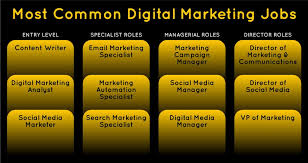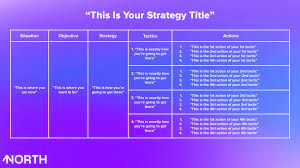Unlocking the Power of Content Marketing: The Role of a Content Marketing Coach
In today’s digital age, content has become the lifeblood of successful marketing strategies. It has the power to engage, educate, and inspire audiences, ultimately driving business growth. However, creating and implementing an effective content marketing strategy can be a daunting task for many businesses. That’s where a content marketing coach comes in.
A content marketing coach is a professional who specializes in guiding businesses through the intricacies of content creation and strategy development. They possess extensive knowledge and experience in the field, enabling them to provide valuable insights and guidance to their clients.
One of the primary roles of a content marketing coach is to help businesses define their target audience and develop a comprehensive understanding of their needs, preferences, and pain points. By conducting thorough market research and analysis, they can identify the most relevant topics and formats that will resonate with the target audience.
Once the target audience is defined, a content marketing coach assists in crafting compelling messages that align with the brand’s values and objectives. They help businesses create engaging content that not only captures attention but also establishes credibility and builds trust with potential customers.
A content marketing coach also plays a crucial role in developing an effective distribution strategy. They guide businesses in selecting appropriate channels such as social media platforms, blogs, email newsletters, or guest posting on industry websites. By leveraging these channels strategically, businesses can maximize their reach and ensure their content reaches the right audience at the right time.
Furthermore, a content marketing coach helps businesses measure and analyze their content performance. They utilize various metrics such as website traffic, engagement rates, conversion rates, or lead generation to assess the effectiveness of different pieces of content. This data-driven approach allows businesses to refine their strategies continuously based on real-time insights.
Another significant aspect of working with a content marketing coach is staying up-to-date with industry trends and best practices. The digital landscape is constantly evolving, and a coach ensures that businesses stay ahead of the curve. They provide guidance on emerging content formats, new platforms, and innovative techniques to help businesses maintain their competitive edge.
Working with a content marketing coach is a valuable investment for businesses looking to establish themselves as thought leaders in their industry. By leveraging the expertise of a coach, businesses can save time and resources by avoiding common pitfalls and implementing strategies that deliver tangible results.
Ultimately, the role of a content marketing coach is to empower businesses to take control of their content strategy and drive meaningful engagement with their target audience. They act as mentors, providing guidance, support, and accountability throughout the content creation process.
In conclusion, content marketing has become an essential tool for businesses seeking growth and success in today’s digital landscape. A content marketing coach serves as a trusted advisor, helping businesses navigate the complexities of content creation, distribution, and measurement. By harnessing their expertise, businesses can unlock the full potential of content marketing and achieve their goals efficiently and effectively.
9 Essential Tips for Effective Content Marketing Coaching in the UK
- Understand your audience
- Develop a clear strategy
- Create valuable and engaging content
- Optimize for search engines
- Leverage social media platforms
- Encourage storytelling
- Analyze data and measure success
- Stay updated on industry trends
- Foster continuous learning
Understand your audience
Understanding Your Audience: The Key to Effective Content Marketing
When it comes to content marketing, one of the most crucial tips is to understand your audience. Your audience is at the heart of your content strategy, and without a deep understanding of their needs, preferences, and pain points, your efforts may fall flat.
Knowing your audience allows you to create content that resonates with them on a personal level. It enables you to craft messages that address their specific challenges and provide valuable solutions. By tailoring your content to their interests and aspirations, you can build trust and establish yourself as an authority in your industry.
To truly understand your audience, start by conducting thorough market research. Dive into demographic data such as age, gender, location, and profession. This information will help you paint a clearer picture of who your target audience is and how they interact with content.
Beyond demographics, delve deeper into psychographics – their motivations, values, interests, and behaviours. What are their pain points? What are they passionate about? What are their goals? Understanding these aspects will help you create content that speaks directly to them.
Another effective way to understand your audience is through social listening. Monitor conversations happening on social media platforms related to your industry or niche. Pay attention to the questions being asked, the problems being discussed, and the topics generating the most engagement. This real-time feedback can provide valuable insights into what matters most to your audience.
Additionally, engage with your audience directly through surveys or polls. Ask for feedback on existing content or seek suggestions for future topics. This not only helps you gather valuable information but also makes your audience feel heard and appreciated.
Once you have a solid understanding of your audience’s needs and preferences, use this knowledge to inform every aspect of your content strategy. From choosing topics that resonate with them to selecting appropriate formats and channels for distribution – every decision should be guided by what will best engage and serve your audience.
Remember, understanding your audience is an ongoing process. As your business evolves and your audience’s needs change, continue to adapt and refine your content strategy accordingly. Stay up-to-date with industry trends and be open to feedback and insights from your audience.
In conclusion, understanding your audience is the foundation of effective content marketing. By investing time and effort into gaining a deep understanding of who they are, what they want, and how they engage with content, you can create impactful content that drives engagement, builds trust, and ultimately leads to business growth. So take the time to listen, learn, and connect with your audience – it will be the key to your content marketing success.
Develop a clear strategy
Develop a Clear Strategy: The Key to Content Marketing Success
In the world of content marketing, having a clear strategy is paramount. Without a well-defined plan in place, businesses risk wasting time, resources, and missing out on valuable opportunities to connect with their target audience. That’s where a content marketing coach can make all the difference.
A content marketing coach emphasizes the importance of developing a clear strategy as the foundation for success. They work closely with businesses to understand their goals, target audience, and unique value proposition. By aligning these elements, they help craft a roadmap that outlines the steps necessary to achieve desired outcomes.
A clear strategy provides direction and purpose to every piece of content created. It ensures that businesses are consistently delivering messages that resonate with their audience and support their overall objectives. A well-defined strategy also helps maintain consistency across different channels and platforms.
When working with a content marketing coach, businesses are guided through the process of defining their target audience in detail. This includes understanding their demographics, interests, pain points, and preferred communication channels. Armed with this knowledge, businesses can tailor their content to meet the specific needs of their audience effectively.
Additionally, a clear strategy helps businesses identify key performance indicators (KPIs) that will measure the success of their content marketing efforts. These KPIs may include metrics such as website traffic, engagement rates, social media followership growth, or lead generation. By setting measurable goals from the outset, businesses can track progress and make data-driven decisions to refine their strategies along the way.
Furthermore, a well-developed strategy allows businesses to stay focused amidst the vast sea of content available online. It helps them differentiate themselves from competitors by identifying unique selling points and areas where they can provide value to their target audience. This differentiation is crucial for capturing attention and building brand loyalty.
A content marketing coach assists in identifying suitable content formats that align with both business goals and audience preferences. Whether it’s blog articles, videos, infographics, podcasts, or social media posts, a coach helps businesses choose the most effective formats to engage their audience and convey their message.
In conclusion, developing a clear strategy is the cornerstone of successful content marketing. Working with a content marketing coach provides businesses with the expertise and guidance needed to create a roadmap that aligns with their goals and resonates with their target audience. By investing time and effort into strategy development, businesses can maximize the impact of their content marketing efforts and achieve long-term success.
Create valuable and engaging content
Creating Valuable and Engaging Content: A Game-Changer in Content Marketing
In the world of content marketing, the phrase “content is king” has become a mantra for success. And at the heart of this mantra lies a simple yet powerful tip: create valuable and engaging content. It may sound like common sense, but it’s a game-changer when it comes to capturing your audience’s attention and driving meaningful results.
Valuable content is all about providing your audience with information, insights, or entertainment that they find genuinely useful. It goes beyond self-promotion or sales pitches. Instead, it focuses on addressing your audience’s pain points, answering their questions, or offering solutions to their problems. By delivering value through your content, you establish trust and credibility with your audience.
Engaging content, on the other hand, is about capturing and holding your audience’s interest. It should be compelling, captivating, and tailored to resonate with your target audience. This can be achieved through various means such as storytelling techniques, visual elements like images or videos, interactive features like quizzes or polls, or even incorporating humor or emotion into your content. The goal is to make your audience want to consume and share your content.
When you combine valuable and engaging content, you create a winning formula for success in content marketing. Here are a few reasons why this tip is so crucial:
- Building Trust: By consistently delivering valuable content that meets the needs of your audience, you establish yourself as an expert in your field. This builds trust and positions you as a reliable source of information.
- Driving Engagement: Engaging content captures attention and encourages interaction from your audience. This can lead to increased engagement metrics such as likes, shares, comments, or even direct messages – all valuable indicators of a successful content strategy.
- Generating Leads: Valuable and engaging content has the power to attract new leads to your business. When people find your content valuable, they are more likely to subscribe to your newsletter, follow you on social media, or even reach out for further information. These leads can then be nurtured into customers over time.
- Enhancing Brand Reputation: When you consistently create high-quality content that provides value and engages your audience, you enhance your brand’s reputation. This positive perception can lead to increased brand loyalty and advocacy.
- Boosting SEO: Search engines love valuable and engaging content. When your content is informative, well-written, and relevant to your target audience, it is more likely to rank higher in search engine results pages (SERPs). This can drive organic traffic to your website and increase your online visibility.
In conclusion, creating valuable and engaging content is not just a tip; it’s a fundamental pillar of successful content marketing. By focusing on delivering value to your audience and capturing their interest through engaging techniques, you can establish trust, drive engagement, generate leads, enhance your brand reputation, and boost your SEO efforts. So remember: when it comes to content marketing, always prioritize quality over quantity and aim to create content that truly resonates with your audience.
Optimize for search engines
Boost Your Content’s Visibility: Optimizing for Search Engines with a Content Marketing Coach
In the ever-expanding digital realm, standing out from the crowd can be a challenging task. This is where the expertise of a content marketing coach comes into play, particularly when it comes to optimizing your content for search engines.
Search engine optimization (SEO) is a crucial aspect of any successful content marketing strategy. It involves tailoring your content to align with the algorithms and ranking factors used by search engines like Google. By doing so, you can increase your website’s visibility and attract organic traffic from users actively searching for relevant information.
A content marketing coach can guide you through the intricacies of SEO, helping you understand how to optimize your content effectively. They can assist in conducting keyword research to identify the terms and phrases that your target audience is searching for. By strategically incorporating these keywords into your content, such as in titles, headings, and body text, you improve its chances of appearing higher in search engine results pages (SERPs).
Additionally, a content marketing coach can advise on optimizing other elements that impact SEO, such as meta tags, alt tags for images, and URL structure. These seemingly small details can make a significant difference in how search engines perceive and rank your content.
Furthermore, they can help you develop a comprehensive internal linking strategy. Internal links connect different pages within your website and help search engines navigate and understand its structure. A well-structured internal linking system not only enhances user experience but also improves your website’s overall SEO performance.
Beyond on-page optimization, a content marketing coach can also provide guidance on off-page SEO techniques. This includes building high-quality backlinks from reputable websites within your industry. Backlinks act as endorsements for your content’s credibility and relevance in the eyes of search engines.
Moreover, they can assist in creating engaging meta descriptions that entice users to click through to your website from the SERPs. While meta descriptions don’t directly impact search engine rankings, they play a crucial role in attracting clicks and increasing your website’s click-through rate (CTR).
By working with a content marketing coach to optimize your content for search engines, you can improve its visibility, reach a wider audience, and drive organic traffic to your website. This targeted traffic has a higher potential for conversion and can ultimately contribute to the growth and success of your business.
In conclusion, optimizing your content for search engines is an essential component of any effective content marketing strategy. A content marketing coach can provide valuable insights and guidance on SEO best practices, helping you maximize the visibility and impact of your content in the digital landscape. With their expertise by your side, you can navigate the complexities of SEO with confidence and achieve tangible results for your business.
Leverage Social Media Platforms: A Game-Changing Tip from Content Marketing Coaches
In the fast-paced digital world we live in, social media has become an integral part of our daily lives. It’s not just a platform for connecting with friends and sharing personal updates; it has also emerged as a powerful tool for businesses to engage with their target audience. This is where the expertise of a content marketing coach comes into play.
One invaluable tip that content marketing coaches provide is leveraging social media platforms to amplify the reach and impact of your content. With billions of active users across various platforms like Facebook, Instagram, Twitter, LinkedIn, and more, these platforms offer an immense opportunity to connect with your target audience on a global scale.
The first step in harnessing the power of social media is understanding your audience and selecting the right platforms to focus on. Each platform caters to different demographics and interests, so it’s crucial to identify where your target audience spends their time online. A content marketing coach can guide you through this process by conducting thorough market research and helping you make informed decisions.
Once you’ve identified the appropriate social media platforms, it’s time to create a cohesive strategy that aligns with your brand identity and goals. A content marketing coach can assist you in developing engaging content tailored specifically for each platform. Whether it’s eye-catching visuals on Instagram or thought-provoking articles on LinkedIn, they help you craft content that resonates with your audience on each respective platform.
Consistency is key when it comes to social media success. A content marketing coach can advise you on establishing a consistent posting schedule that keeps your brand top-of-mind without overwhelming your audience. They can also help you curate compelling captions or headlines that grab attention and encourage engagement.
Engagement is another vital aspect of leveraging social media effectively. It’s not just about broadcasting your message; it’s about fostering meaningful connections with your audience. A content marketing coach can provide guidance on how to engage with your audience by responding to comments, initiating conversations, and participating in relevant discussions. This two-way communication builds trust and loyalty among your followers.
Furthermore, a content marketing coach can help you navigate the world of social media advertising. They can guide you in creating targeted ad campaigns that reach a wider audience or retarget those who have shown interest in your content. By leveraging the advanced targeting options available on social media platforms, you can maximize the impact of your content and drive conversions.
Lastly, a content marketing coach will emphasize the importance of measuring and analyzing your social media efforts. They will help you track key metrics such as engagement rates, click-through rates, follower growth, and conversions. By monitoring these metrics, you can gain insights into what’s working and what needs improvement, allowing you to refine your strategy over time.
In conclusion, leveraging social media platforms is a game-changing tip provided by content marketing coaches. With their guidance, you can tap into the vast potential of social media to expand your reach, engage with your target audience, and drive meaningful results for your business. So don’t underestimate the power of social media – embrace it with the help of a content marketing coach and unlock new opportunities for success.
Encourage storytelling
Encourage Storytelling: A Powerful Tip from a Content Marketing Coach
In the realm of content marketing, there is a key ingredient that has the power to captivate audiences and leave a lasting impression: storytelling. As businesses strive to connect with their target audience on a deeper level, incorporating storytelling into their content strategy has become increasingly vital. This is where the guidance of a content marketing coach can truly make a difference.
A content marketing coach understands the art of storytelling and recognizes its immense potential in engaging and resonating with audiences. By encouraging businesses to embrace storytelling in their content, they help them create compelling narratives that evoke emotions, build connections, and ultimately drive results.
Storytelling goes beyond simply conveying information; it taps into the human experience, making it relatable and memorable. When businesses share stories that are authentic, relevant, and meaningful to their audience, they can forge stronger connections and establish trust.
A skilled content marketing coach guides businesses in identifying their unique stories – whether it’s the brand’s journey, customer success stories, or personal experiences of team members. They help craft narratives that align with the brand’s values and resonate with the target audience.
By incorporating storytelling techniques such as vivid descriptions, relatable characters, and compelling narratives into their content strategy, businesses can create an emotional connection that differentiates them from competitors. This connection fosters loyalty and encourages audiences to engage further with the brand.
Moreover, storytelling allows businesses to showcase their expertise in a more engaging manner. Instead of presenting dry facts or sales pitches, they can use stories to educate and inspire their audience. By sharing practical examples or case studies through storytelling, businesses can demonstrate how their products or services have made a positive impact on real people’s lives.
A content marketing coach also helps businesses leverage various formats for storytelling across different channels. Whether it’s through blog posts, videos, social media campaigns or podcasts – they assist in selecting the most suitable medium to bring stories to life and reach the intended audience effectively.
Furthermore, a content marketing coach helps businesses measure the impact of their storytelling efforts. They analyze engagement metrics, such as shares, comments, or time spent on content, to gauge its effectiveness. This feedback enables businesses to refine their storytelling approach and continuously improve their content strategy.
In conclusion, storytelling is a powerful tool in content marketing that can elevate brands and create meaningful connections with audiences. A content marketing coach understands the significance of storytelling and guides businesses in harnessing its potential. By encouraging businesses to incorporate storytelling into their content strategy, they help them engage on a deeper level and stand out in today’s crowded digital landscape. So, embrace the power of storytelling with the guidance of a content marketing coach, and watch as your brand leaves a lasting impact through compelling narratives.
Analyze data and measure success
Analyzing Data and Measuring Success: A Key Tip from Content Marketing Coaches
In the realm of content marketing, success is not merely determined by the creation and distribution of engaging content. It also hinges on the ability to analyze data and measure the impact of your efforts. This is where the expertise of a content marketing coach becomes invaluable.
One fundamental tip provided by content marketing coaches is to place a strong emphasis on data analysis and measurement. By diligently tracking key metrics, businesses can gain valuable insights into their content performance and make informed decisions to optimize their strategies.
Data analysis involves examining various metrics such as website traffic, engagement rates, conversion rates, click-through rates, social media interactions, or lead generation. These numbers provide a comprehensive picture of how well your content resonates with your target audience and whether it is effectively driving desired actions.
A content marketing coach helps businesses identify the most relevant metrics to track based on their specific goals and objectives. They guide businesses in setting up analytics tools, such as Google Analytics or social media analytics platforms, to collect accurate data. Coaches also assist in interpreting this data and extracting meaningful insights that can inform future content strategies.
Measuring success goes beyond just looking at numbers; it involves aligning those metrics with your business objectives. A content marketing coach helps businesses define clear goals for their content marketing efforts, whether it’s increasing brand awareness, generating leads, driving website traffic, or boosting conversions. By establishing these goals upfront, coaches ensure that the data collected reflects progress towards achieving them.
Regularly reviewing and analyzing data allows businesses to identify what works and what doesn’t in their content marketing strategy. For instance, if certain types of blog posts consistently generate high engagement rates or if specific social media platforms drive more traffic to your website, these insights can be used to refine future content creation and distribution efforts.
Moreover, measuring success enables businesses to demonstrate the value of their content marketing efforts to stakeholders within the organization. By presenting data-backed results, businesses can showcase the return on investment (ROI) of their content marketing initiatives and secure continued support and resources for future endeavours.
In conclusion, analyzing data and measuring success is a crucial tip emphasized by content marketing coaches. By leveraging data-driven insights, businesses can optimize their content strategies, improve audience engagement, and achieve their marketing objectives more effectively. Working with a content marketing coach provides the necessary expertise to navigate the intricacies of data analysis, ensuring that businesses make informed decisions that drive tangible results.
Stay updated on industry trends
Staying Ahead with a Content Marketing Coach: The Importance of Industry Trend Awareness
In the fast-paced world of content marketing, keeping up with industry trends is crucial for success. As businesses strive to engage their target audience and stand out from the competition, staying updated on the latest trends becomes a strategic advantage. This is where a content marketing coach can play a pivotal role.
A content marketing coach understands the ever-evolving digital landscape and the importance of staying ahead of the curve. They are well-versed in emerging technologies, platforms, and techniques that can enhance a business’s content strategy. By working closely with a coach, businesses can tap into their expertise and gain valuable insights into industry trends.
One key benefit of staying updated on industry trends is the ability to identify new content formats that resonate with audiences. As consumer preferences change, certain types of content may become more popular or effective in capturing attention. A content marketing coach can guide businesses in exploring innovative formats such as interactive videos, podcasts, or live streaming to keep their content fresh and engaging.
Moreover, being aware of industry trends allows businesses to adapt their strategies to meet evolving consumer demands. A coach can provide insights on emerging topics or issues that are gaining traction within a specific industry. By creating relevant and timely content around these trends, businesses can position themselves as thought leaders and establish credibility among their target audience.
Another advantage of staying updated on industry trends is the ability to leverage new platforms or channels for content distribution. Social media platforms evolve rapidly, and new ones emerge regularly. A content marketing coach keeps abreast of these developments and helps businesses identify which platforms align best with their target audience’s preferences. This ensures that businesses reach their audience effectively and maximize engagement.
Furthermore, understanding industry trends allows businesses to anticipate changes in consumer behavior or market dynamics. By being proactive rather than reactive, companies can stay one step ahead of competitors and seize opportunities before they become mainstream. A content marketing coach can provide valuable insights into emerging market trends, enabling businesses to adjust their content strategies accordingly.
Lastly, staying updated on industry trends demonstrates a commitment to continuous improvement and growth. It shows that a business is proactive in adapting to changes and is willing to invest in staying relevant. This can enhance the brand’s reputation and attract new customers who value innovation and up-to-date knowledge.
In conclusion, staying updated on industry trends is essential for businesses aiming to excel in content marketing. A content marketing coach serves as a trusted advisor, keeping businesses informed about the latest developments and helping them leverage emerging trends effectively. By staying ahead of the curve, businesses can create compelling content, engage their target audience, and gain a competitive edge in the dynamic world of content marketing.
Foster continuous learning
One of the most valuable tips for businesses seeking to harness the power of a content marketing coach is to foster a culture of continuous learning. In the ever-evolving world of content marketing, staying updated with the latest trends, strategies, and technologies is crucial to maintaining a competitive edge.
A content marketing coach can play a significant role in facilitating this continuous learning process. They bring their wealth of knowledge and industry experience to the table, providing businesses with valuable insights and guidance. By encouraging open dialogue and regular communication with their coach, businesses can tap into a wealth of expertise and stay ahead of the curve.
Continuous learning in content marketing goes beyond just keeping up with industry trends. It involves actively seeking out new ideas, experimenting with different approaches, and embracing a growth mindset. A content marketing coach can inspire businesses to think outside the box, challenge conventional wisdom, and explore innovative strategies that resonate with their target audience.
Moreover, fostering continuous learning within a business creates an environment that encourages creativity and collaboration. It allows team members to share ideas, learn from one another’s experiences, and collectively develop new approaches to content creation and distribution. This collaborative mindset can lead to breakthroughs in strategy development and ultimately drive better results.
To foster continuous learning effectively, businesses should invest in ongoing training opportunities for their team members. This could include attending industry conferences or webinars, participating in workshops or seminars, or even enrolling in online courses specific to content marketing. By equipping team members with the necessary skills and knowledge, businesses empower them to contribute more effectively to the overall content marketing strategy.
Another essential aspect of fostering continuous learning is regularly evaluating the performance of content initiatives. A content marketing coach can guide businesses in analyzing data-driven insights to identify areas for improvement and optimization. By leveraging analytics tools and metrics such as engagement rates or conversion rates, businesses can gain valuable insights into what works best for their target audience.
In conclusion, fostering continuous learning is an invaluable tip for businesses working with a content marketing coach. By embracing a culture of learning, businesses can adapt to the ever-changing landscape of content marketing, stay ahead of their competition, and drive better results. With the guidance of a content marketing coach and a commitment to ongoing education, businesses can unlock their full potential and achieve long-term success in their content marketing endeavors.












